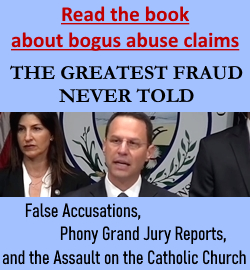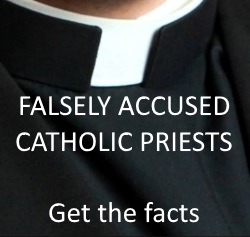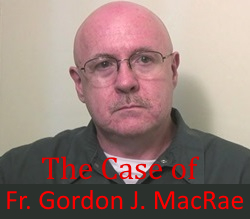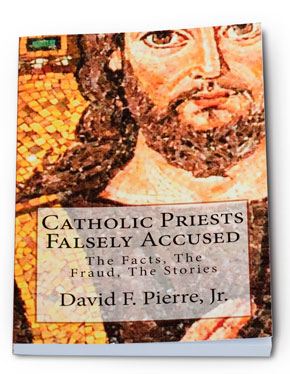“We got a new law passed in California that opens up the statute of limitations for all victims of sexual abuse. It’s something we’ve been trying to do in several states for years. And I’m not waiting for it to click in. I’m suing the sh** out of [the Catholic Church] everywhere: in Sacramento, in Santa Clara, in Santa Rosa, in San Francisco, in Oakland, in L.A., and everyplace else.”
- Attorney Jeff Anderson, April 2003 interview
Meet Minneapolis attorney Jeff Anderson.
No single individual has gone after the Catholic Church more than Anderson has. It’s estimated that he’s earned hundreds of millions of dollars suing the Catholic Church.
How has Anderson prevailed?
In an April 2010 newspaper profile, attorney Jeff Anderson told the Washington Post, “I believe Christ was a student of Buddha.”
What at first blush appears to be an innocuous remark actually tells a lot about Jeff Anderson. He never lets the facts get in the way of what he wants to believe. (There’s not even the slightest shred of evidence, for example, that Jesus was a “student of Buddha.”)
For years, Anderson has been screaming of an “international criminal conspiracy” by the Vatican to cover up the awful sex abuse of children. Yet, like with his remark about Jesus and Buddha, there’s never been any support for the claim.
Sadly, many in the media have uncritically eaten up the wild claims by Anderson.
Even the liberal Minneapolis weekly City Pages has likened Anderson to a “wisecracking ambulance chaser with a reputation for hunting priests and an advanced degree in self-promotion.”
An early case for Anderson as a lawyer was defending gay activists after police raids of bathhouses. He also defended a homeless man for indecent exposure in a church basement.
In looking back on his early lawsuits against the Church, Anderson’s wife confides, “[I]t was more about the flash and the appearance of it all. He liked to play the part of the scrappy little lawyer, a down-and-dirty sort of asshole. He was an actor on a stage. And he was very good at commanding an audience.”
Anderson’s modus operandi is easy to identify: Get out in front of a lot of cameras and make a lot of noise. Say whatever it takes. The facts don’t matter.
And there’s little doubt that newspaper journalists love Jeff Anderson. “He’s everything you want an attorney to be if you’re a reporter,” Matt Carroll, a columnist for the Boston Globe, has said. “He has lots of information, he returns your phone calls, and he has good quotes … [A]nytime I need big-picture type comments, I give him a call.”
Intimidation also appears to be part of Anderson’s repertoire. Upon filing a lawsuit, Anderson has been known to place a bullying phone call to the accused priest. “They usually don’t answer,” Anderson has said. “But if they don’t, they’ll see it on their caller ID, or get my message. And they’ll know I am on to them.” One wonders what the Minnesota Office of Lawyers Responsibility Board would say about such a tawdry tactic.
“Innocent until proven guilty” is not a belief that Anderson appears to subscribe to. Joe Maher, president of Opus Bono Sacerdotii, told Minneapolis’ City Pages weekly newspaper, “Civil attorneys like Jeff Anderson have a responsibility to look at each individual and make a determination, an authentic determination – to find out whether or not an accusation has merit before they file a suit. And it’s already impossible to do that. They meet with someone for a few minutes, lump allegations together, throw lawsuits at the wall, and see what sticks. In the meantime, men’s lives are being ruined. They don’t care. And if they say they know that everyone they have targeted is guilty, they’re lying to you or to themselves.”
“When attorneys go to the media with this stuff now, everyone they sue is guilty until proven innocent, and that’s neither just nor fair,” said Maher.
In June 2007, a priest who says he was falsely accused by a client of Anderson filed a defamation lawsuit against his accuser. An angry Anderson placed a call to Cardinal Francis George and pressed him to get the lawsuit dropped. When the Cardinal refused, Anderson huffed and cooked up his next maneuver. “I want a lawsuit filed Wednesday,” ordered Anderson, “and I want to name Cardinal George personally for his failure to protect these victims.” In this case, a simple refusal of his demand was worthy of a fresh, new lawsuit against the Church.








